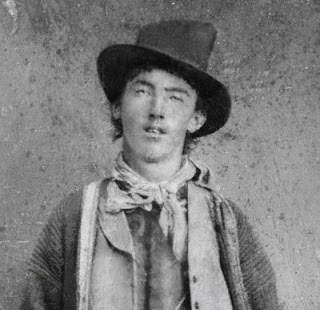This week (April 25 - May 1) in crime history – John
Wilkes Booth was killed (April 26, 1865); Andrew Cunanan began cross country
killing spree (April 27, 1997); Jaycee Dugard’s kidnappers plead guilty (April
28, 2011); Mutiny on the HMS Bounty (April 28, 1789); Martin Bryant began
killing spree in Australia (April 28, 1996); Deposed Italian dictator Benito
Mussolini was executed (April 28, 1945); Police officers in the Rodney King
beating trial were found innocent (April 29, 1992); First Federal prison for
women opened in West Virginia (April 30. 1927); Tennis star Monica Seles was
stabbed during match in Germany (April 30, 1993); Former NBA star Jayson
Williams was indicted for the shooting death of Costas Christofi (May 1, 2002)
Highlighted Crime
Story of the Week –
On April 26,
1865, John Wilkes Booth was killed when Union soldiers track him down to a
Virginia farm 12 days after the assassination of Abraham Lincoln.
Twenty-six-year-old Booth was one of the most famous actors in the country when
he shot Lincoln during a performance at Ford's Theater in Washington D.C., on
the night of April 14. Booth was a strong supporter of the Confederacy. As the
war entered its final stages, Booth hatched a conspiracy to kidnap the
president. He enlisted the aid of several associates, but the opportunity never
presented itself. After the surrender of Robert E. Lee at Appomattox Court
House on April 9, Booth changed the plan to a simultaneous assassination of
Lincoln, Vice President Andrew Johnson, and Secretary of State William Seward.
Only Lincoln was actually killed, however. Seward was stabbed by Lewis Paine
but survived, while the man assigned to kill Johnson did not carry out his
assignment.
After shooting
Lincoln, Booth jumped to the stage below Lincoln's box seat. He landed hard,
breaking his leg, before escaping to a waiting horse behind the theater. Booth
and his accomplice, David Herold, made their way across the Anacostia River and
headed toward southern Maryland. The pair stopped at Dr. Samuel Mudd's home,
and Mudd treated Booth's leg. This earned Mudd a life sentence in prison when
he was implicated as part of the conspiracy, but the sentence was later
commuted. Booth found refuge for several days at the home of Thomas A. Jones, a
Confederate agent, before securing a boat to row across the Potomac to
Virginia.
After
receiving aid from several Confederate sympathizers, Booth's luck finally ran
out. The countryside was swarming with military units looking for Booth,
although few shared information since there was a $20,000 reward. While staying
at the farm of Richard Garrett, Federal troops arrived on their search but soon
rode on. The unsuspecting Garrett allowed his suspicious guests to sleep in his
barn, but he instructed his son to lock the barn from the outside to prevent
the strangers from stealing his horses. A tip led the Union soldiers back to
the Garrett farm, where they discovered Booth and Herold in the barn. Herold
came out, but Booth refused. The building was set on fire to flush Booth out,
but he was shot while still inside. He lived for three hours before gazing at
his hands, muttering "Useless, useless," as he died.
Check back every
Monday for a new installment of “This Week in Crime History.”
Michael Thomas Barry is a columnist for www.crimemagazine.com and is the author
of seven nonfiction books that includes the recently published In the Company of Evil Thirty Years of
California Crime 1950-1980. Visit Michael’s website www.michaelthomasbarry.com for
more information. His book can be purchased from Amazon through the following
link:




